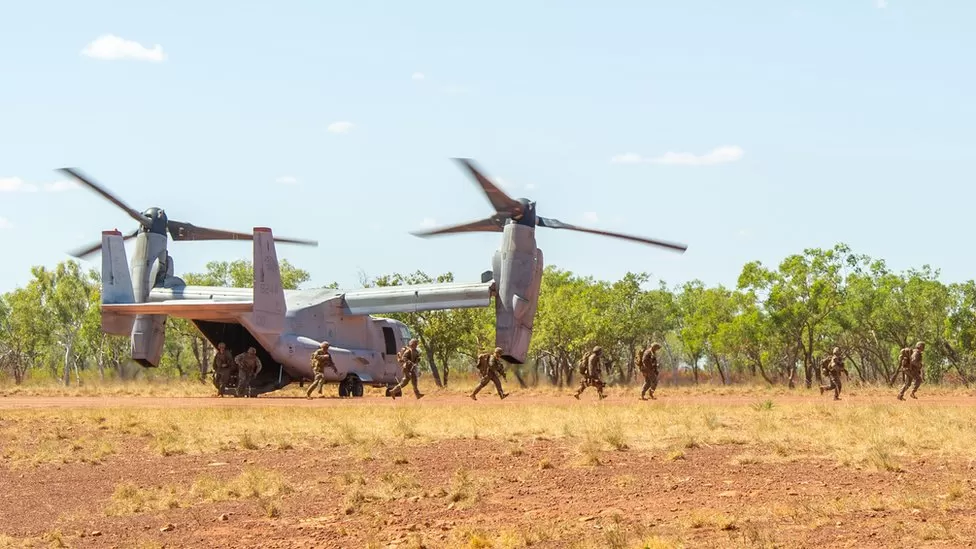The laidback Australian city key to countering China

Australian Prime Minister Anthony Albanese meets US President Joe Biden in Washington this week, deterring an assertive China will be on the agenda. Watching from home is Darwin, a city that is a key component of the US-led defence alliance in the Pacific.
A Japanese aircraft appeared over Darwin on a Thursday morning in 1942, bringing the war to Australia for the first time.
A hail of bombs pelted the coast, spraying red dirt and engulfing the turquoise harbour in smoke and fire. At least 230 people were killed in the two air raids that nearly destroyed the town.
19 February was the precursor to some 200 raids across northern Australia, but it remains the country’s deadliest attack.
Eighty years later, Darwin is a relaxed holiday destination with few visible signs of war. However, there are fears that this city may once again be caught in the crosshairs of a global conflict.
Darwin, home to several key military bases that could be crucial in any conflict with China, is at the center of deepening Canberra-Washington links and the focus of massive government investment.
For those who are wary about Beijing’s power, American interest is reassuring, but there is alarm for those who worry it will threaten their home.
According to Billee McGinley of the Top End Peace Alliance, a local activist group, “You’re inviting conflict.” In the shadow of the city’s war memorial Cenotaph, the group took turns sharing their concerns.
Darwin has long been a military town, you can drive across the sparsely populated city in 15 minutes, but there are two bases there. People are more likely to wear military fatigues than suits.
